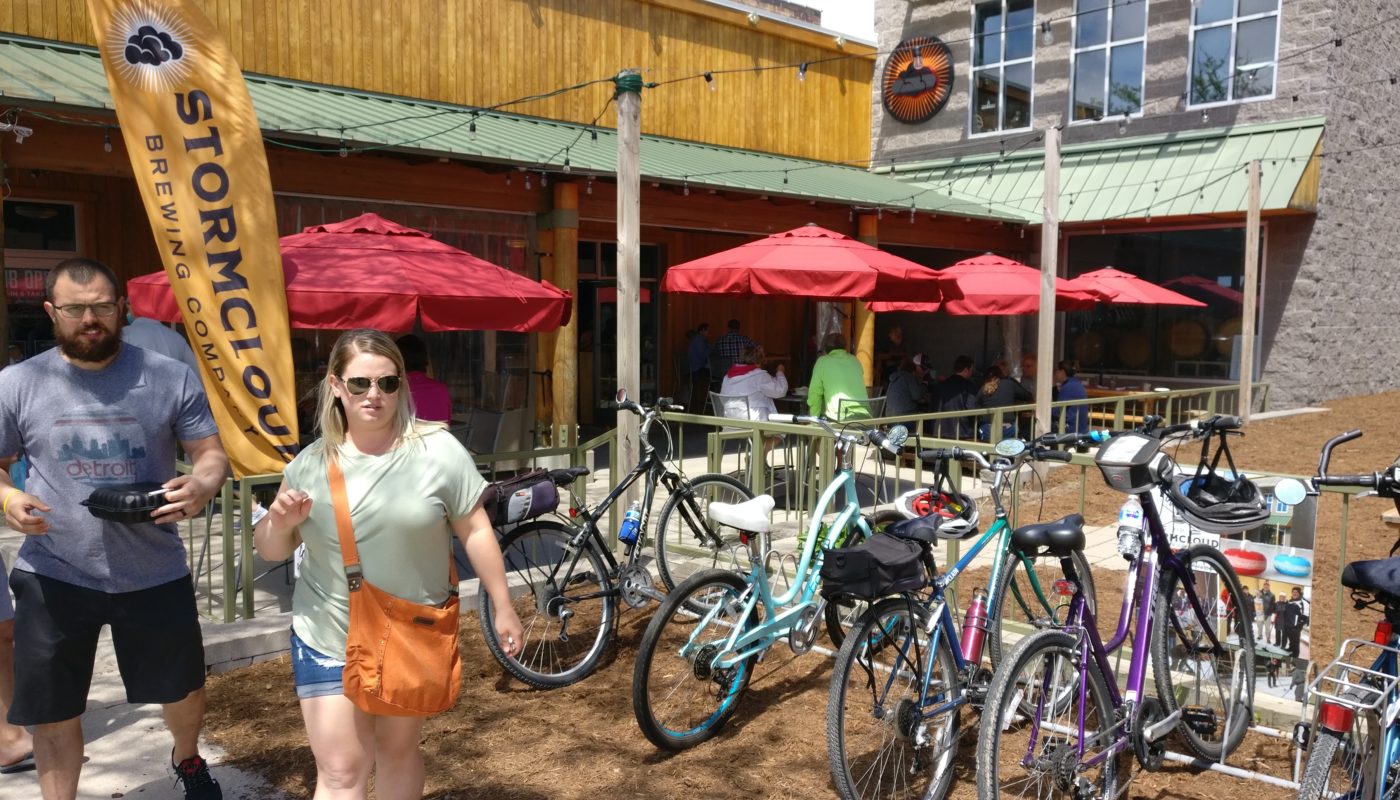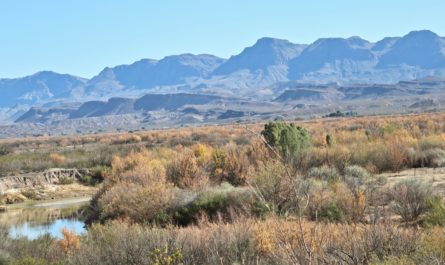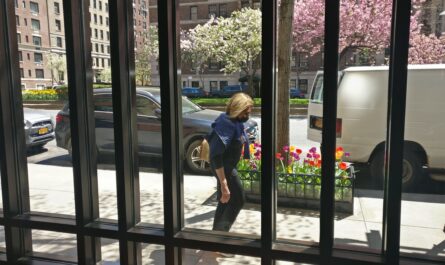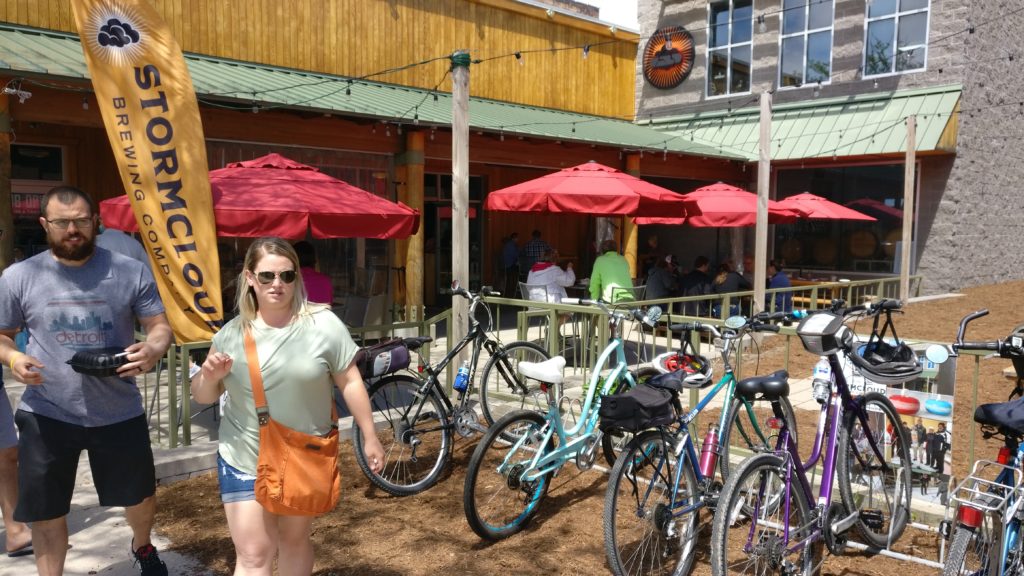
BENZONIA, MI – Tucked away on the northern shore of Lake Michigan, the residents of Benzie County spent the final days of winter and the early weeks of spring confident they were safe, but agitated about what was coming.
A scenic region of thick forests, clean lakes, and tiny villages, Benzie County lies 30 miles southwest of Traverse City, the nearest sizable city, 80 miles distant from the closest thruway, and 220 miles northwest of Detroit. Those very same features of nature and remote rural character that slowed the pace of life and kept Covid-19 at bay in March and April, form the alluring foundation of a sizable summer tourist economy that started in May.
On May 18, as Memorial Day approached, Michigan Governor Gretchen Whitmer opened businesses in Benzie and other counties across northern Michigan, one of the latest of the 110 pandemic-related executive orders she signed since declaring a statewide emergency on March 10. On June 1, Whitmer issued another order that essentially opened the rest of the state, ending the stay-at-home confinement and business closure measures that had been in place since March 23.
In almost every dimension of public and personal safety, economic anxiety and civic awareness, this lightly populated, hard-to-reach, one-stoplight county at the end of the road has been quickly pushed to the frontlines. For months an isolated outback of pandemic safety, Benzie County has reached a new station of regional prominence and significance. A summering county anticipating the arrival of thousands of visitors — an unknown number who may be infected with a dangerous virus — makes Benzie a microcosm of the frustration, resignation, and fear that encompasses the reopening of the entire country.
Perhaps even more so. “We had 4 cases. Not too much to worry about,†said Shaun Johnson, a retired teacher raised in Benzonia. “People wore masks. People were pretty comfortable. Now stores are reopening. They hire more younger people. Customers are showing up without masks.â€
He added: “Memorial Day. People were out in masses. Hundreds of people, people not from here, were standing here and there and no one is wearing masks. I call it the maskless protest. Who are these people who don’t have the decency to put a mask on?â€
“Yesterday I had to make a quick run to the pharmacy which is curbside,” said Linda Baatz, a county resident. “I really was not prepared for what I witnessed. Frankfort was completely overrun with cars and people. Before Covid-19 this would be a normal summer. This outpour of people from Texas, Illinois, Ohio, Kentucky, Tennessee, and California is unacceptable during a pandemic. People are not social distancing and most if not all are not wearing masks as requested for the safety of others.”
“We did as we were told when the Covid-19 virus hit,” added Baatz. “Then just because we had low cases suddenly we became a target for anyone to come visit here and spread the virus. This is totally unacceptable. We only have a small hospital. There are many people who live here full time that are elderly or disabled and have health problems to start with. Stop the spread!”
A tier of rural counties near the Canadian border that starts in northern Idaho and extends east across the Great Plains to the northern Great Lakes states forms an 1800-mile zone of relative security from the pandemic. Many of the counties have reported no cases since January when the first Covid-19 infection was confirmed in the U.S.
Benzie County lies near the eastern boundary of that zone. Settled in the late 19thcentury, the county’s timeline is distinguished by a durable economic, social, and now medical compact written by its distance from big cites, natural resources, cold winters, temperate summers, and conservation policies.
In 1970, President Nixon signed the act to establish the 71,000-acre Sleeping Bear Dunes National Lakeshore, a unit of the National Park system, parts of which lie within the county. By 2011, when Good Morning America named the Sleeping Bear region “the most beautiful place in America,†Benzie had long distinguished itself as a both an inviting place to live close to nature, and as a vacation mecca. During the 1990s it was the second-fastest growing county in Michigan.
In the 21stcentury, the county changed course. The 2008 recession halted the flow of new residents. The population in 2019, 17,500, is virtually unchanged since 2010. Public school enrollment declined sharply. More than one in four residents are seniors, much higher than the state rate. Fewer than one in five are under 18 years old, much lower than the state rate.
Will the pandemic produce more changes? The answer is not at all clear, in large part because for all intents and purposes it hasn’t really arrived. The first case in Benzie County was confirmed on April 15. Three more quickly followed. Nobody died. One more case developed after Memorial Day.
Similarly low pandemic metrics were reported in neighboring counties to the north and south.
The county’s seclusion, say health authorities, is one reason for the low number of Covid-19 cases. So far.
It is also clear that social distancing — the Benzie way of life in winter — and business closures were factors in keeping infections low. Consider that during the 1918 flu pandemic, when the county population was half what it is today, deaths from all causes, including the flu, reached 23 in December 1918, according to historic records. That was more than double the number of deaths in a typical month at that time.
Another reason for the low number of Covid-19 cases is the extensive public health and medical infrastructure that swung into action in March. Leaders of the two-county Benzie-Leelanau District Health Department convened regular meetings with county authorities, emergency medical crews, the local hospital, the regional Munson Medical Center in Traverse City, school administrators, and Northwest Michigan Health Services, which operates a medical and dental clinic in Benzonia. The primary topics were communications and coordination to establish safety measures for residents and employees, response to the governor’s executive orders, acquisition of personal protective equipment, conducting testing, and making results known to the public.
“We were ready,†said Michelle Klein, the Benzie-Leelanau Health District’s director of personal health. “We’ve been preparing for a biological outbreak since 9/11. The background infrastructure had already been created. We’ve done many training exercises over the years.â€
The two-county health district traced the contacts associated with the handful of infections in its jurisdiction and confirmed that no other cases developed. And testing has been fairly extensive across the region.
Northwest Michigan Health Services tested 700 people in its Traverse City office. There were 11 positive results that resulted in 14-day quarantines, said Gwen Williams, the agency’s chief of development. Munson Health Care, owner and manager of nine hospitals in Northern Michigan, reports that of the 5,740 patients it tested, 303 people were positive.
“As we look to summer, we are proceeding with a thoughtful phased reopening and continuing many of the formal actions and plans that we have been following since the beginning of the pandemic,†said Dr. Joe Santangelo, Munson’s interim chief of quality and safety. “We continue to look at PPE supplies and usage and meet regularly at a system level to watch local trends of cases and plan the allocation of resources. We will be ready for any potential surge of Covid-19.â€
The county’s four long-term care and assisted living facilities responded quickly to protect residents. Paul Oliver Memorial Hospital in Frankfort, the county’s largest town, shut down its long-term care facility to visitors on March 11; twelve days later they closed off visitation in the hospital. Employees received temperature checks when they reported for work. Residents were checked daily for changes in their temperatures and encouraged to remain in their rooms. Non-essential medical appointments were postponed.
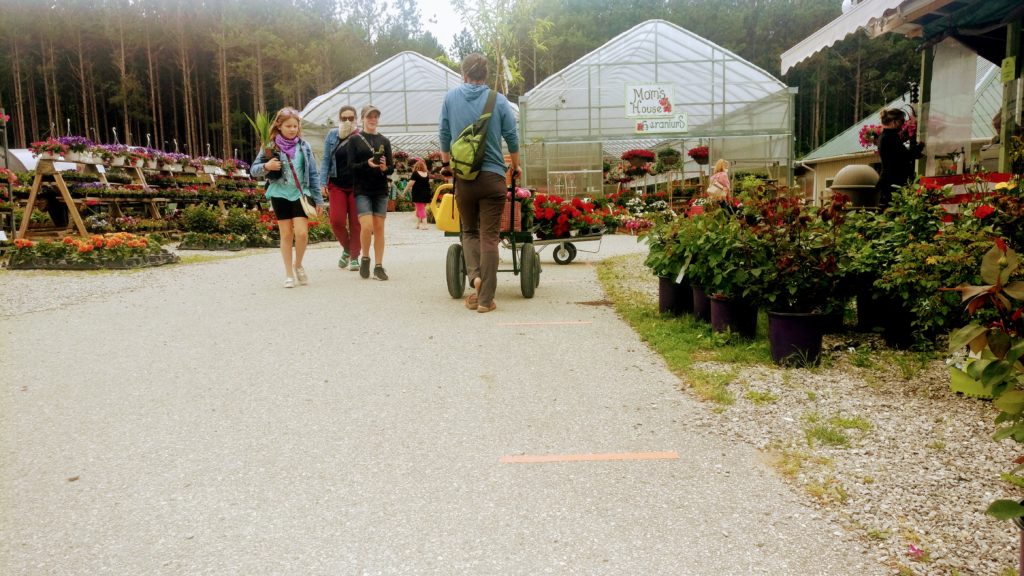
“We’ve evaluated nearly every practice, from visitors entering the building, to the way we clean our facility,†said Dr. Mark Langlois, Paul Oliver’s medical director of long-term care.“It’s been a challenging few months with a lot of hard work. But we have been successful in keeping Covid-19 out of our facility.â€
The professional medical and health response to the virus also was assisted by projects developed spontaneously in the county’s private sector. Josh Stoltz, director of Grow Benzie, a non-profit community center, organized a group to sew face masks. He worked with Benzie Bus, the county’s transit agency, to distribute 1,500 masks around the county and region during the pandemic’s first six weeks.
Aubrey Ann Parker, co-owner and editor of the Betsie Current, a local newspaper, worked with two colleagues to prepare and publish the Benzie County Resource Guide, an 18-page directory of public and private agencies, professionals, and services for people who either needed help or wanted to help in the early spring. She distributed the directory online and in 6,000 printed copies. “Everyone was sharing stuff on social media — different resources that people could use. It was all getting buried,†she said. “We wanted to put all that information in one place and have it categorized and up to date to make it easy to find what you were looking for. Food. Unemployment information. How to do a 14-day quarantine. Anecdotally, people told us it was helpful.â€
The largest Covid-19 outbreak to date in northern Michigan occurred in much larger Grand Traverse County, 20 miles east, where 38 cases were confirmed and 5 people died as of June 22. But the 15 newest infections in Grand Traverse were reported after Memorial Day. That detail, which drew headlines and attention from regional radio, television, and Facebook pages, stirred anxiety.
“Most of us local folks are feeling a bit of discomfort with the crowds of travelers from so many areas,” said Klein of the health district. “From the public health perspective, we are closely watching our COVID numbers with the influx of summer travelers. With the lifting of the stay home, stay safe executive orders travelers are allowed to come to the area. Many businesses have done an amazing job preparing to serve customers in the safest way possible and many (but not all) are enforcing mask wearing. If the health department receives a complaint about a particular business we do contact them to offer information and support so that they can comply with the executive orders. “
The county’s health and medical professionals predicted that the number of Covid-19 infections will rise. How much? Nobody can project because the summer population is transient. More than 1,000 second-home owners are arriving from southern Michigan, Ohio, Illinois, and elsewhere across the country. Tens of thousands more will spend a few days, a few weeks, and leave. Various studies have found that during a typical July day, more than 30,000 people reside in the county and thousands more are day visitors.
“We do not yet know what impact the gradual reopening of the state’s economies will have on cases,†said Kristi Johnson, chief nursing officer at Paul Oliver Memorial Hospital. “Until then, we are staying the course and continue to be diligent in our hand hygiene, social distancing, and other safety measures.â€
“Everyone is concerned,†added Mitch Deisch, Benzie County administrator. “This is not anything like we’ve seen before. We have family. We have friends. We also have an obligation to provide services to 17,500 residents. And we take that obligation seriously.â€
Just how seriously was called into question on April 15 — the same day the first Covid case was reported in Benzie — when much of the county’s leadership and many of its citizens were shocked by an announcement by Benzie County Sheriff Ted Schendel. A self-described “constitutional†officer, Schendel issued a formal notice that he’d allied himself with three other sheriffs in neighboring counties to voice “our opposition to some of Governor Whitmer’s executive orders.â€
“As a result,†he added, “we will not have strict enforcement of these orders.â€
Sheriff Schendel’s notice coincided with “Operation Gridlock,†held that same day, when supporters of President Donald Trump blocked streets in Lansing, the Michigan state capital, to oppose Governor Whitmer’s orders that kept businesses closed, which were seen as a violation of their rights.
Schendel embraced that view. “Allowing those without paychecks back to work is imperative to the economic success and wellbeing of our community,†he said. “Each of us took an oath to uphold and defend the Michigan Constitution, as well as the US Constitution, and to ensure that your God given rights are not violated. We believe that we are the last line of defense in protecting your civil liberties.â€
The sheriff’s notice floored senior county officials, who declined to comment on it for this article. It also rattled many residents.
“It was a political stunt,†said Timothy Young, a resident of Honor, Mi., and founder of Food For Thought, a specialty food company there. “At a time like this we should be coming together as a community. We look to law enforcement to be a glue for our society at times of crisis. It was unbecoming for law enforcement officers.â€
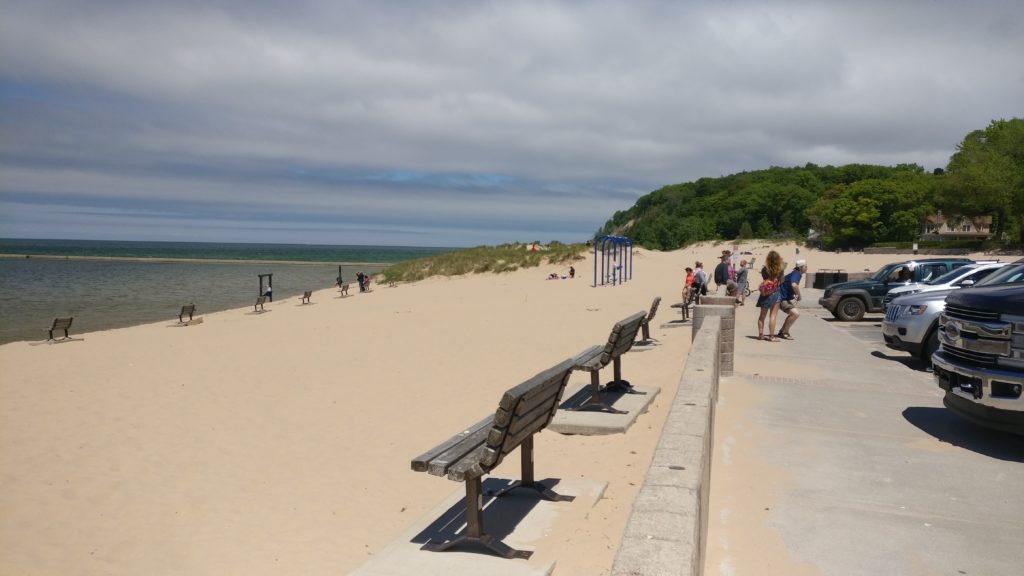
Most significantly, the sheriff’s attack on the governor’s safeguards was a rebuke to the elaborate safety measures, many recommended by the governor, that his own agency was taking to protect its officers, staff members, people they arrested, and inmates in the county jail.
In an interview, Undersheriff Kyle Rosa explained that since mid-March officers wore gloves, goggles, and facemasks as needed during their patrols.
Arrest practices were altered to reduce the number of people incarcerated. Intoxicated people, and only those who were dangerous to themselves or others, were arrested. Following arrest, they were monitored for fever and asked screening questions, like where they had recently traveled.
With court oversight, several inmates in the county’s 49-bed jail were freed to make space to quarantine new inmates for 14 days. The average number of people incarcerated fell to 11 a day, down from 25 before the pandemic. The department halted visits from families.
Seven inmates agreed to voluntary Covid-19 tests. None were positive. And until Memorial Day, the department closed its lobby. “We have services available for the public. Finger prints for jobs and concealed pistol permits,†Rosa said. “You can’t do somebody’s prints without being in their space. We felt that would be a harm.â€
Before and after the sheriff’s provocative notice, Benzie residents calmly and patiently observed safety measures, wearing masks and keeping safe distance in the public spaces that were open — grocery and convenience stores and post offices.
Business owners took precautions, too. Stormcloud, a popular brew pub in Frankfort, did not open over the Memorial Day weekend. Its owners were not ready for what they anticipated would be too much pent-up demand.
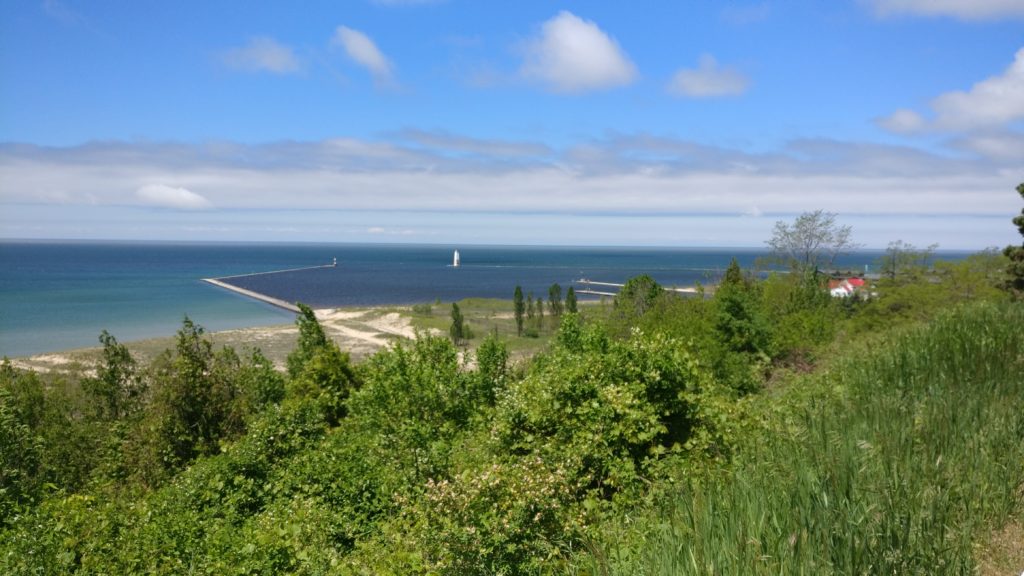
The pub prepared a 20-page plan for opening a week later that included requiring the 50 employees, many of them students, to wear masks and gloves. “We heard from three sets of parents who wanted to know what the plan was for keeping their people safe,†said co-owner Rick Schmitts. “We have a plan. And we want to make sure we don’t slip.â€
Employees nervously returned to work. “Honestly, I have been living very, very carefully,†said Mary Pitcher, one of Beulah’s 341 residents who works in a restaurant in Frankfort. “I’m going to have to go back to work. My customers aren’t wearing a mask. I’m in front of their face. I’m right there. The world is starting up again. I have to participate whether I’m comfortable or not.â€
As for Sheriff Schendel’s resistance and other public protests of safety measures? Benzie health professionals say it doesn’t matter.
“We can do this work without politics involved,†said Klein of the Benzie-Leelanau Health District. “We don’t have to worry about anything except getting the job done.â€
(A version of this article was published on June 15, 2020 by Stat, a national medical and health technology and trends news group in Boston. See: Postcard from the edge: A rural getaway, protected from Covid-19, fears it may be swallowed into the pandemic
